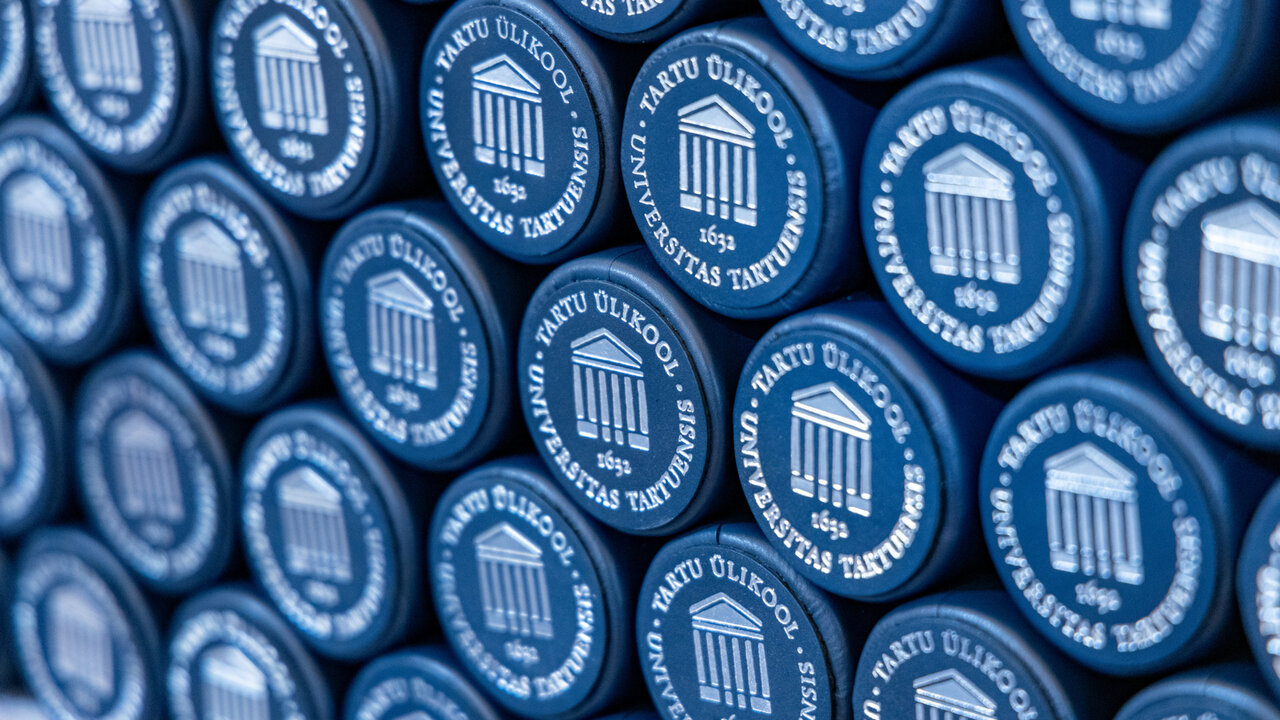-
Faculty of Arts and HumanitiesJakobi 2, r 116-121 51005 Tartu linn, Tartu linn, Tartumaa ESTJakobi 2 51005 Tartu linn, Tartu linn, Tartumaa ESTJakobi 2, IV korrus 51005 Tartu linn, Tartu linn, Tartumaa ESTJakobi 2, III korrus, ruumid 302-337 51005 Tartu linn, Tartu linn, Tartumaa ESTÜlikooli 16 51003 Tartu linn, Tartu linn, Tartumaa ESTLossi 3 51003 Tartu linn, Tartu linn, Tartumaa ESTÜlikooli 18 50090 Tartu linn, Tartu linn, Tartumaa ESTPosti 1 71004 Viljandi linn, Viljandimaa ESTJakobi 2 51005 Tartu linn, Tartu linn, Tartumaa ESTJakobi 2 51005 Tartu linn, Tartu linn, Tartumaa ESTFaculty of Social SciencesLossi 36 51003 Tartu linn, Tartu linn, Tartumaa ESTJakobi 5 51005 Tartu linn, Tartu linn, Tartumaa ESTLossi 36, ruum 301 51003 Tartu linn, Tartu linn, Tartumaa ESTNarva mnt 18 51009 Tartu linn, Tartu linn, Tartumaa ESTNäituse 2 50409 Tartu linn, Tartu linn, Tartumaa ESTNäituse 20 - 324 50409 Tartu linn, Tartu linn, Tartumaa ESTLossi 36 51003 Tartu linn, Tartu linn, Tartumaa ESTRaekoja plats 2 20307 Narva linn, Ida-Virumaa ESTRingi 35 80012 Pärnu linn, Pärnu linn, Pärnumaa ESTLossi 36 51003 Tartu linn, Tartu linn, Tartumaa ESTLossi 36 51003 Tartu linn, Tartu linn, Tartumaa ESTFaculty of MedicineRavila 19 50411 Tartu linn, Tartu linn, Tartumaa ESTBiomeedikum, Ravila 19 50411 Tartu linn, Tartu linn, Tartumaa ESTNooruse 1 50411 Tartu linn, Tartu linn, Tartumaa ESTL. Puusepa 1a 50406 Tartu linn, Tartu linn, Tartumaa ESTL. Puusepa 8 50406 Tartu linn, Tartu linn, Tartumaa ESTRavila 19 50411 Tartu linn, Tartu linn, Tartumaa ESTUjula 4 51008 Tartu linn, Tartu linn, Tartumaa ESTRavila 50411 Tartu linn, Tartu linn, Tartumaa ESTRavila 19 50411 Tartu linn, Tartu linn, Tartumaa ESTFaculty of Science and TechnologyVanemuise 46 - 208 51003 Tartu linn, Tartu linn, Tartumaa ESTNarva mnt 18 51009 Tartu linn, Tartu linn, Tartumaa ESTRiia 23b/2 51010 Tartu linn, Tartu linn, Tartumaa ESTRavila 14a 50411 Tartu linn, Tartu linn, Tartumaa ESTNarva mnt 18 51009 Tartu linn, Tartu linn, Tartumaa ESTRiia 23, 23b - 134 51010 Tartu linn, Tartu linn, Tartumaa ESTObservatooriumi 1 61602 Tõravere alevik, Nõo vald, Tartumaa ESTNooruse 1 50411 Tartu linn, Tartu linn, Tartumaa ESTJ. Liivi tn 2 50409 Tartu linn, Tartu linn, Tartumaa ESTVanemuise 46 51003 Tartu linn, Tartu linn, Tartumaa ESTVanemuise 46 51003 Tartu linn, Tartu linn, Tartumaa ESTArea of Academic SecretaryLossi 3 51003 Tartu linn, Tartu linn, Tartumaa ESTUppsala 6, Lossi 36 51003 Tartu linn, Tartu linn, Tartumaa ESTArea of Head of FinanceÜlikooli 17 51005 Tartu linn, Tartu linn, Tartumaa ESTArea of Director of AdministrationÜlikooli 18A (III korrus) 51005 Tartu linn, Tartu linn, Tartumaa ESTÜlikooli 18, ruumid 102, 104, 209, 210 50090 Tartu linn, Tartu linn, Tartumaa ESTArea of Vice Rector for DevelopmentNarva mnt 18 51009 Tartu linn, Tartu linn, Tartumaa ESTVanemuise 46 51003 Tartu linn, Tartu linn, Tartumaa ESTLossi 25 51003 Tartu linn, Tartu linn, Tartumaa ESTArea of RectorArea of Vice Rector for Academic AffairsUppsala 10 51003 Tartu linn, Tartu linn, Tartumaa ESTÜlikooli 18b 51005 Tartu linn, Tartu linn, Tartumaa ESTArea of Vice Rector for ResearchW. Struve 1 50091 Tartu linn, Tartu linn, Tartumaa EST
Doctoral defence: Antonina Martynenko „Традиции и инновации в русской поэзии второй половины 1830-х гг.: количественное исследование“

On 13 January at 16:00, Antonina Martynenko will defend her doctoral thesis "Традиции и инновации в русской поэзии второй половины 1830-х гг.: количественное исследование" ("Traditions and Innovations in Russian Poetry of the Second Half of the 1830s: A Quantitative Study") for obtaining the degree of Doctor of Philosophy in Russian Literature.
Supervisor:
Associate Professor Roman Leibov, University of Tartu
Opponents:
Professor Emeritus David J. Birnbaum, University of Pittsburgh (United States)
Professor Igor Pilshchikov, Tallinn University
Summary
Digital Humanities—a modern field where computers assist humanities research—once promised a revolution in literary studies. With digitisation and machine learning, it offered the chance to examine thousands of books in minutes, not years. But how can computers help analyse literary texts, and does access to a larger “library” allow us to rethink literary history?
This dissertation addresses these questions focusing on a short under-studied period in Russian poetry: 1835 to 1840, considered the end of “the Golden Age”. Scholarly assessments of 1830s poetry vary: some describe these poems as ponderous copies of earlier exemplary texts, while others portray the 1830s poets as unskilled yet determined innovators who disrupted the “classical” poetic style. To reassess the place of the late 1830s poetry, this study compiled a large, unbiased corpus of 4,797 lyrical poems printed between 1835 and 1840. By analysing quantifiable features of poems, such as word frequencies and rhyme endings statistics, the dissertation asks which changes in the poetic language are traceable on the level of “poetic population”.
Data reveals both innovation and retention in the poetry of this period. On the one hand, the poetry of the mid- and late 1830s is different enough from earlier texts on formal levels: an algorithm can distinguish 1830s texts based on word, meter, or rhyme frequencies. In other words, these poems are far from mere imitations. On the other hand, certain features of poetic style remain conservative, such as the poetic genres and their connections to specific meters. Thus, the truth lies somewhere between the contrasting opinions about this period in poetic history: neither did the 1830s poets blindly imitate the past, nor did they disrupt the “Golden age’s” legacy. Similarly, while studying a larger corpus computationally does not bring about a revolution, statistical reasoning at the population level can provide a stable ground for further humanities inquiry.
Doctoral defence: Antonina Martynenko „Традиции и инновации в русской поэзии второй половины 1830-х гг.: количественное исследование“
Read more similar news





